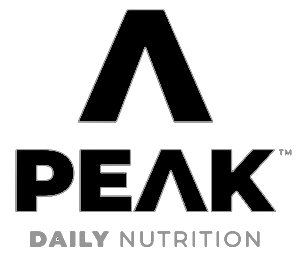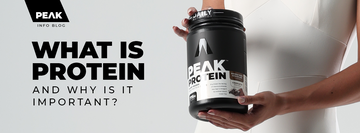Protein is one of the three essential macronutrients, alongside carbohydrates and fats. Proteins are made up of amino acids, which are the building blocks of the body, and they play a crucial role in various bodily functions. Proteins are essential for muscle growth and repair, particularly after exercise or injury. They also play a key role in enzyme and hormone production, immune support, tissue repair, and the transportation of essential nutrients. Additionally, protein promotes satiety, helping with appetite control and weight management.
Protein Quality
Not all proteins are created equal. Protein quality is determined by two things: its amino acid profile and bioavailability. There are 20 amino acids found in nature, of which 9 are essential, meaning the body cannot produce them and therefore they must be obtained through food. The remaining 11 amino acids are classified as ‘non-essential’ as the body can synthesize them on its own. A ‘complete protein’ describes a food source that contains all 9 of the essential amino acids in sufficient amounts, such as eggs. Bioavailability refers to how efficiently the body absorbs and utilizes a protein source. In general, at least 90% of dietary protein is absorbed. High biological value (HBV) proteins are absorbed and utilised more efficiently in the body and therefore have a higher bioavailability. PEAK Protein is formulated with a blend of high-quality plant-based proteins, including faba bean, pea protein, and pumpkin seed, which together provide all 9 essential amino acids, making it a complete protein. PEAK has 6,8g of Essential Amino Acids, yielding 3,2g of branched chain amino acids.
The amino acid make up of the ingredients in PEAK Protein contain:
Faba beans contains: Lysine, leucine, isoleucine, threonine, histidine
Pea protein and pumpkin seeds are considered to have all 9 essential amino acids.
In addition, the PEAK Protein contains the desirable Amino Acid ratio of 2:1:1 (meaning for every 2g of Leucine, there is +-1g of valine and +-1g unit of Isoleucine). This is a well-supported amino acid ratio essential for stimulating muscle synthesis. This ratio reflects the natural proportions of BCAAs found in protein in the body.
How much protein should I be eating?
Protein requirements vary based on several factors, including age, gender, activity level, and individual health goals. For the general population, protein intake should account for approximately 10-25% of total energy intake, which equates to about 1.0 – 1.3 g/kg of body weight per day. Those looking to build muscle or engage in strength training may require a higher intake of around 1.3 – 2.0 g/kg per day. While higher intakes of up to 2.5 g/kg per day may be beneficial for some individuals, research indicates that consuming excessive protein does not necessarily lead to greater muscle gains. Studies suggest that a maximum intake of around 2 g/kg per day is sufficient for most people.
While meeting daily protein requirements is essential, how protein is distributed throughout the day also plays a key role in maximizing muscle protein synthesis, recovery, and overall health. Instead of consuming all of your protein at one meal, research suggests that spreading protein intake evenly across the day is more effective for muscle maintenance and growth. Consuming protein throughout the day will provide a steady supply of amino acids to the body, causing reduction muscle breakdown and promoting better recovery. For optimal muscle synthesis (and depending on your personal goals), try to aim for about 20-40g of protein per meal. Because most people struggle to eat protein every breakfast (and don’t feel like having eggs again), PEAK Protein can be taken in the morning with breakfast. We suggest making a smoothie/ mixing into your dairy/ dairy substitute before adding nuts/ seeds/ cereal/ fruit salad.
Protein is an essential nutrient that plays a fundamental role in health, performance, and recovery. However, consuming more protein than necessary does not always yield additional benefits. Individual protein needs should be carefully assessed, and it is always advisable to work with a registered dietitian or qualified healthcare professional to determine the right protein intake based on personal goals and health status.
References:
Watford M, Wu G. Protein. Adv Nutr. 2018 Sep 1;9(5):651-653. doi: 10.1093/advances/nmy027. PMID: 30060014; PMCID: PMC6140426.
Jäger, R., Kerksick, C.M., Campbell, B.I. et al. International Society of Sports Nutrition Position Stand: protein and exercise. J Int Soc Sports Nutr 14, 20 (2017). https://doi.org/10.1186/s12970-017-0177-8













